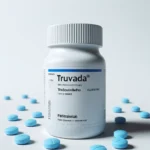Talc Powder Ovarian Cancer Lawsuit Overview
Our team of attorneys is managing baby powder lawsuits nationwide. For years, Johnson & Johnson has been embroiled in lawsuits alleging that prolonged use of their talcum powder products, such as Baby Powder and Shower to Shower, can lead to ovarian cancer in women, increasing their cancer risk. Talcum powder is commonly used in consumer products, and there are concerns about its potential links to cancer, including findings of asbestos contamination in talc-based cosmetics.
Addressing the potential links between talc and cancer is part of tackling the world’s toughest health challenges through innovative medicine and MedTech.
This page offers the latest updates on J&J talcum powder litigation and explains how upcoming bankruptcy rulings might impact settlement amounts in these ovarian cancer lawsuits.
Here’s the latest news on talc powder lawsuits and guidance on how to file a claim in 2024.
Can You Still File a Talcum Powder Lawsuit? Many assume it’s too late to sue Johnson & Johnson, but this is often not the case. Contact us at 800-356-4338 or get a free case review online to explore your options.
Latest News on J&J Talcum Powder Lawsuits and Ovarian Cancer Risk – 2024 Updates
May 21, 2024: A new study in the Journal of Clinical Oncology bolsters the claims of over 50,000 lawsuits against Johnson & Johnson, linking its talc-based baby powder to ovarian cancer, especially with frequent or long-term use. This study highlights the increased ovarian cancer risk, undermining J&J’s defense that its products are safe and asbestos-free, likely impacting ongoing settlements.
May 1, 2024: Johnson & Johnson has agreed to a $6.5 billion global settlement to resolve most of the ovarian cancer claims. The settlement allows J&J’s subsidiary to file a third bankruptcy proceeding, despite previous bankruptcies being dismissed. This deal excludes mesothelioma claims, which J&J has mostly settled. However, plaintiff approval remains uncertain. Advanced treatments are being explored to address complex diseases linked to these claims.
April 30, 2024: Attorneys for the plaintiffs are contesting a mandate from the MDL judge to refile Daubert motions, arguing that recent amendments to Federal Rule of Evidence 702 and new scientific insights do not justify such comprehensive procedural measures. They believe this move is intended to pressure plaintiffs into settling.
April 22, 2024: Johnson & Johnson and its subsidiary Kenvue Inc. were ordered to pay $45 million to the family of Theresa Garcia, an Illinois woman who died from mesothelioma, a cancer linked to asbestos exposure. This verdict marks one of the first significant rulings since a previous bankruptcy filing by a J&J unit was dismissed. The case also highlighted concerns about lung cancer risks associated with asbestos.
April 18, 2024: A Florida state court jury found J&J’s baby powder talc product was not responsible for causing ovarian cancer in a Sarasota County woman, ruling in favor of J&J. This case underscores the importance of improving patient outcomes in medical treatments.
April 17, 2024: The jury in a Florida talc powder trial deliberated on whether the plaintiff’s use of J&J talc powder caused her ovarian cancer. The plaintiff’s experts testified about the increased risk and potential tumor formation, with a verdict expected soon.
April 11, 2024: A talc lawyer testified in court, defending against J&J’s claims of breaching ethical duties by collaborating with a former company attorney to propose a $19 billion settlement. Innovative medicine plays a crucial role in addressing the world’s toughest health challenges, including those related to talc exposure.
April 2, 2024: A new talc powder lawsuit in Sarasota, Florida, alleges that a woman’s prolonged use of J&J’s baby powder caused her ovarian cancer. This is the second trial following the dismissal of J&J’s bankruptcy filing. However, some studies have not found such a link, indicating the need for further research.
April 1, 2024: The talcum powder MDL saw the addition of 143 new cases, bringing the total to 53,939 pending cases.
March 27, 2024: MDL Judge Michael A. Shipp ordered a complete resubmission of Daubert motions due to updates in Federal Rule of Evidence 702 and new scientific developments. Disease control organizations play a vital role in evaluating cancer risks associated with substances like talc. Community guidelines are being updated to reflect the latest findings and recommendations related to talc exposure.
March 19, 2024: Plaintiffs’ lawyers are fighting J&J’s efforts to quash a subpoena on PricewaterhouseCoopers LLP, seeking communications related to J&J’s contingent liability for its talc products. The case also involves discussions about medical devices used in the evaluation process.
March 8, 2024: The volume of new talc claims in the MDL has slowed, with only about 60 new cases since the start of the year. Medical research continues to focus on the most complex diseases, seeking advanced treatments and solutions.
March 6, 2024: A Florida state judge declared a mistrial in a talc powder lawsuit after jurors couldn’t reach a verdict on whether J&J’s baby powder caused cancer.
March 1, 2024: The defense in the Miami ovarian cancer talc powder trial presented their case, arguing there was no evidence linking the use of baby powder to ovarian cancer.
February 16, 2024: The trial judge ruled that old advertisements for J&J baby powder are relevant for punitive damages in the ongoing talc powder trial. This decision could significantly impact patient outcomes in future cases.
February 14, 2024: A new trial in Miami alleges J&J has been aware for decades that its baby powder could cause cancer. The lawsuit seeks accountability for the 2019 death of a woman who used talcum powder daily for over 50 years. Advanced treatments are crucial in improving patient outcomes in such cases.
February 10, 2024: New deadlines in the MDL have been set, with expert witness depositions and filings scheduled throughout the year.
February 5, 2024: J&J continues to challenge plaintiffs’ experts and preparations, issuing new subpoenas to disqualify a plaintiffs’ attorney.
February 2, 2024: The talcum powder MDL saw the addition of 34 new cases, bringing the total to 53,767 pending cases.
January 23, 2024: J&J has offered $6.9 billion to settle over 50,000 ovarian cancer claims. The average settlement would be around $130,000, but many believe J&J needs to pay more. This settlement aims to address complex diseases linked to talc exposure.
January 19, 2024: The pace of new case filings in the talcum powder MDL has slowed, with only four new cases added in recent weeks.
January 11, 2024: J&J agreed to a $700 million settlement in talc powder lawsuits from numerous U.S. states regarding deceptive marketing tactics.
January 3, 2024: J&J investors filed a class action lawsuit claiming the company made misleading statements regarding the safety of its talc products and its research commitments.
January 1, 2024: The talcum powder class action MDL saw a prolonged week with five new cases filed, bringing the total to over 50,000 pending claims.
Conclusion
The talc powder lawsuit landscape continues to evolve, with significant legal developments and settlement negotiations. If you believe you have a claim, it’s crucial to stay informed and consider your legal options. Contact our attorneys at 800-356-4338 or get a free case review online.



















